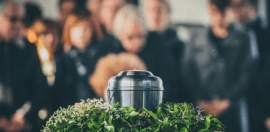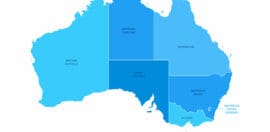Community sector braces for next COVID crisis

17 January 2022 at 10:24 pm
“If we close, people who rely on us can’t get help.”
Community service leaders fear vulnerable people will be left to fend for themselves as the Omicron variant forces frontline charities to wind back services and in some cases, shut down completely.
With the latest COVID variant, Omicron, seeing community case numbers skyrocket to record levels across Australia, many sectors are now battling extreme staff shortages and supply chain problems due to isolation requirements.
Maiy Azize, a spokesperson for Anglicare Australia, told Pro Bono News that over the past few weeks, COVID outbreaks within organisations has meant there are not enough staff to run frontline services.
“We’re starting to get really concerned about everyone getting sick at the same time and outbreaks across whole workplaces,” Azize said.
“If you look at aged care, around one in four shifts are going unfilled, and we can’t pretend that’s not going to have an impact on the people we care for.”
She said that Anglicare was now struggling to find staff to work across all their frontline services, including their soup-kitchens and in their childcare centres.
“When there are outbreaks and there’s no capacity to move people around or bring in workers, we just have to close,” she said.
“If we close, people who rely on us can’t get help.”
She said that with a third of food and emergency relief workers predicted to be isolating over the next few weeks, vulnerable people who can’t afford bills and food will be left without any support.
“They’re already the people being hardest hit by [the staff shortages]. It’s actually disastrous,” she said.
Disability sector also in crisis
Disability organisations are also pleading for more support as service providers face a severe shortage of staff working in in-home care or in group residential care.
President of People With Disability Australia, Samantha Connor, said that as well as staff having to isolate, the severe shortage of rapid antigen tests has meant they aren’t able to get regularly tested to show they can provide COVID-safe services to clients.
“What this means is thousands of people with disability who require care and support services every day to live healthy, functional and dignified lives are now left scrambling to find workers who can provide the COVID-safe services they need,” Connor said.
“We’ve had reports of people not getting basic assistance for days on end, people sleeping in their wheelchairs because there’s no one to help them get into bed, and people going to hospital because they can’t get the support they need in their home or residential setting.”
And while there are reports that some industries such as health care are asking workers not to take rapid tests, or work when they are a close contact to combat staff shortages, Connor said that this was a dangerous move for people with disability.
“We’ve also had reports that to limit staff shortages, nurses in some hospitals are being asked not to take rapid tests which means going to these hospitals to get services could also be potentially dangerous for people with disability as COVID could easily be spreading unchecked in such settings,” she said.
“For many people with disability, getting COVID could have dire consequences, but not getting care and support could also have dire consequences.”
And many members of our community, including NDIS participants, are significantly under-vaccinated or not vaccinated at all.
Azize echoed these sentiments.
“When you work with really vulnerable people like people with disabilities, children who aren’t vaccinated, and remote Indigenous communities, the last thing our staff want to do is to make their clients sick,” Azize said.
Charities can’t bear the brunt of responsibility
While Azize said that there is currently some “patchy” help to help charities secure RATs, it wasn’t nearly enough to stop the spread of the current outbreak.
She said that this meant charities were having to shoulder the responsibility, which many organisations couldn’t afford to do.
“We’ve got a member who just spent over $35,000 on tests and they’re not even going to arrive for a number of weeks because of supply chain issues,” she said.
“But there are many charities that do not have this kind of money lying around, which means there is going to be no alternative but to close.
“This is the worst point in the pandemic, and this is the point that the government has chosen to offload its responsibility for testing onto everybody else.”
Connor added that disability support workers needed to have access to free RATs and PPE so they can confidently provide COVID-safe services to their clients.
“Australia has obligations under the Convention on the Rights of Persons with Disability, of which it is a signatory,” Connor said.
“Governments must work together with our sector to ensure we have equitable access to preventative measures and a surge workforce and [can] make people with disability safe.”







